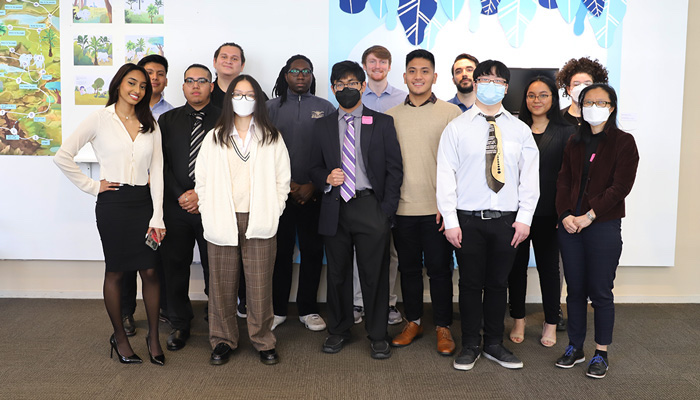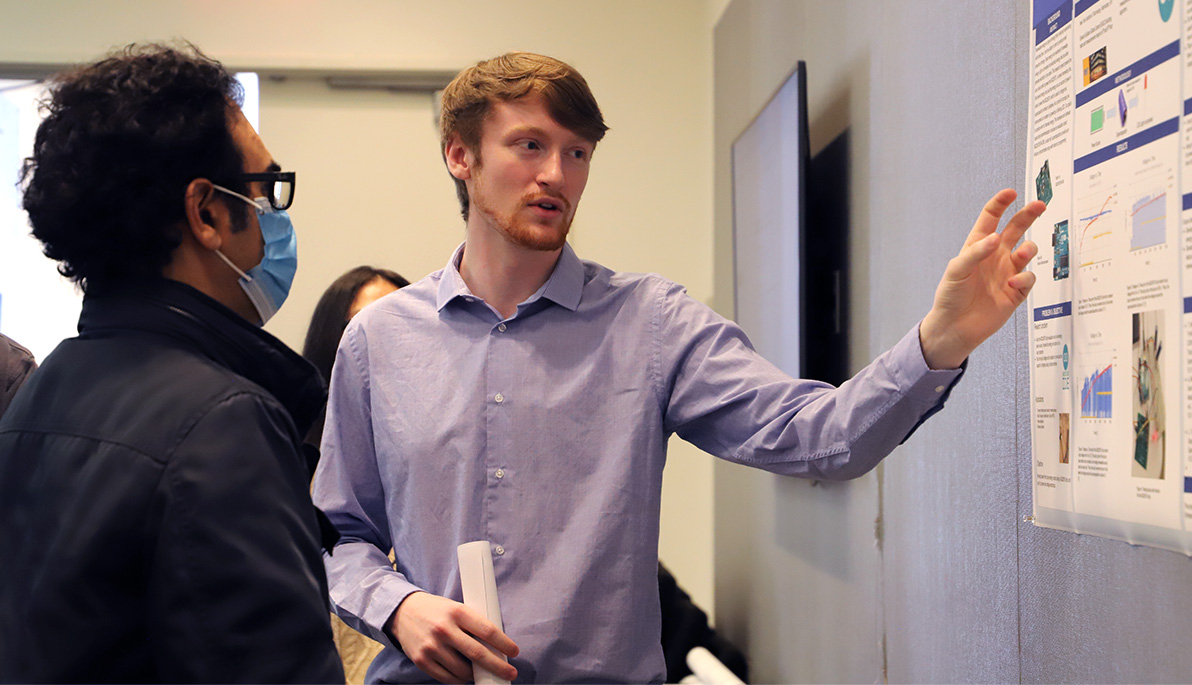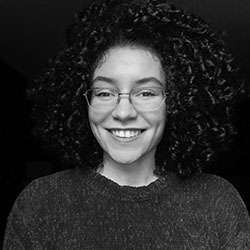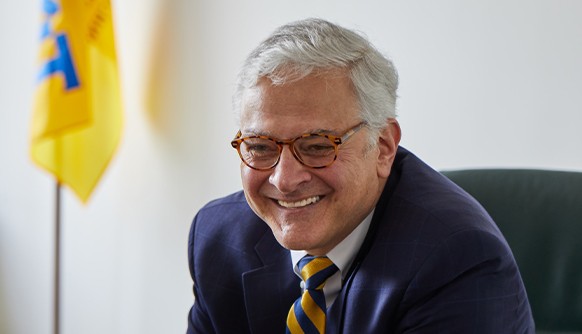News
UREP Students Take on Real-World Challenges
May 18, 2022
Pictured: Austin Stietzel presents the findings of his team’s research project Wireless Power Transfer.
Students in the Undergraduate Research Entrepreneurship Program (UREP) showcased their final presentations on May 10 at an in-person event on in the 11th floor auditorium on the New York City campus after two years of virtual engagement. Six groups presented their projects with the assistance of their faculty mentors.
Professor Ziqian (Cecilia) Dong, Ph.D., who established the program, said the pandemic presented some frustrating but all-too-familiar challenges. However, she remained optimistic through it all.
“We are very proud of what our students have accomplished in the past year It’s a wonderful feeling being able to bring everyone together in person and seeing them sharing their research findings after more than two years of the pandemic,” said Dong.
The program provides each research team with $500 to cover the cost of supplies and materials. Projects can run for a single semester or extend to multiple semesters, should the team decide to pursue further development.

UREP students at the May 10 presentation of their final projects with Associate Professor Ziqian (Cecilia) Dong (far right, front row) and Sarah Hessasta, student engagement specialist in the College of Engineering and Computing Sciences (far right, back row).
“The projects are becoming more interdisciplinary over the years, where students from different majors collaborate and use their knowledge in tackling pressing real-world problems in sustainability, precision healthcare, and renewable energy,” said Dong. “We greatly appreciate the dedicated faculty mentors providing guidance to introduce our undergraduates into the research field. Many teams are preparing their research for publication or have their manuscript accepted in professional conferences or journals.”
“It is through participation in active learning projects such as the UREP that our students, early in their careers, practice working in teams to solve open-ended research problems,” added Babak D. Beheshti, Ph.D., dean of the College of Engineering and Computing Sciences. “The UREP program has been a cornerstone of the college’s strategy to involve its students in research. This year’s final presentations were a great demonstration of our students’ ability to eloquently present the results of their research under the mentorship of our dedicated faculty members.”
The following projects were presented this year:
Comparative Study of Mitigation Techniques for VR Cybersickness
Faculty Mentors: Helen Gu, Ph.D., N. Sertac Artan, Ph.D., Ziqian (Cecilia) Dong, Ph.D.
Team Members:
- Guang Wei Too
- Joshua Ladero
- Jacqueline Clarke
Differentiating between EEG patterns of Arm and Finger Movement using Machine Learning
Faculty Mentor: Maryam Ravan, Ph.D.
Team Members:
- Mary Margarette Sanchez
- Lee Borden
Application of Machine Learning Algorithm to Predict the Efficacy of Bupropion in Treatment of Patients with Major Depressive Disorder
Faculty Mentor: Maryam Ravan, Ph.D.
Team Member:
- Kennette James Maddela, computer science
Wireless Power Transfer
Faculty Mentor: N. Sertac Artan, Ph.D.Team Members:
- Rasheed Martin
- Keshawn Moses
- Meredith Foe
- Austin Stietzel
Study on Sustainability of Electric Vehicles Adoptions in Urban Environment
Faculty Mentor: Ziqian (Cecilia) Dong, Ph.D.Team Members:
- Jack Tenesaca
- Angily Ally
- Marvin Rivera,
- Steven Vera
A Machine Learning Algorithm Discriminating between Bipolar and Major Depressive Disorders Based on Resting EEG Data
Faculty Mentor: Maryam Ravan, Ph.D.Team Members:
- Mary Margarette Sanchez
- Lee Borden





